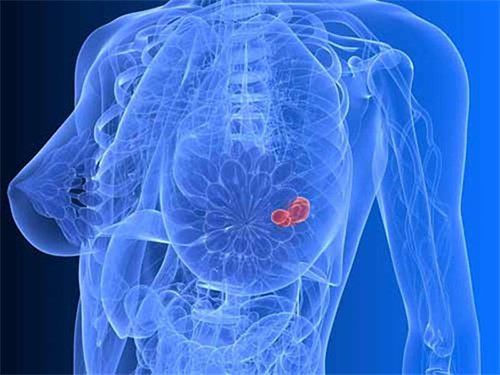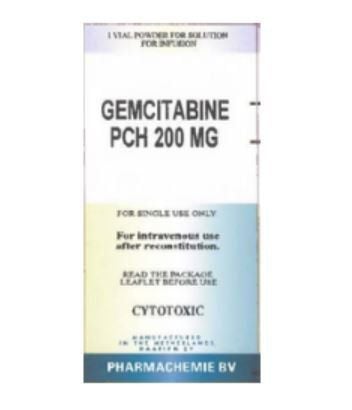This is an automatically translated article.
HER2-positive breast cancer is a highly malignant form of breast cancer, identified when the HER2 protein concentration exceeds the normal threshold on the surface of the cancer cell. One in five breast cancers will have cancer cells with mutations in genes that produce an excess of the HER2 protein. HER2-positive breast cancers tend to be more aggressive than other types of breast cancer. Patients are less susceptible to hormone therapy, although many people with HER2-positive breast cancer can still benefit from hormone therapy.1. What is HER2?
HER2 (as epithelial growth factor receptor 2) is a gene that may play a role in the development of breast cancer. For breast cancer patients, testing for HER2 status should be done to let doctors know if HER2 plays a role in the cancer.Genes contain the codes for making various proteins that cells need to stay healthy and function properly. Certain genes and proteins they make can affect how breast cancer behaves and how it might respond to a particular treatment. Cancer cells extracted from the patient's tissue are examined to see which genes are normal and which are abnormal.
The HER2 gene makes the HER2 protein (sometimes called the HER2/neu protein). HER2 proteins are receptors on breast cells. Normally, the HER2 receptor helps control how breast cells work to grow, divide, and repair themselves. But in about 25% of people with breast cancer, the HER2 gene doesn't work correctly and makes too many copies of itself (called HER2 gene amplification). All of these overexpression HER2 genes cause breast cells to make too many HER2 receptors (HER2 protein overexpression). This causes breast cells to grow and divide in an uncontrolled way.
Breast cancers with HER2 gene amplification or overexpression of the HER2 protein are called HER2 positive. HER2-positive breast cancers tend to grow faster, are more likely to develop into metastatic breast cancer earlier, and come back earlier than HER2-negative breast cancers.

2. Types of HER2 . Status Tests
There are four tests for HER2.IHC test (ImmunoHistochemology): The ImmunoHistochemology test is used to detect whether breast cancer patients have too much HER2 protein in their cancer cells. The results of the IHC test can be: 0 (negative), 1+ (also negative), 2+ (unknown) or 3+ (positive - overexpression of the HER2 protein). FISH (Fluorescence In Situ Hybridization) test: This is a test to check that breast cancer patients have too many copies of the HER2 gene in their cancer cells. FISH test results can be positive (HER2 amplified) or negative (non-HER2 amplified). SPoT-Light HER2 CISH (Subtraction Probe Technology Chromogenic In Situ Hybridization) test: This test detects that breast cancer patients have too many copies of the HER2 gene in their cancer cells. SPoT-Light test results can be positive (HER2 amplified) or negative (non-HER2 amplified). HER2 Dual ISH (Inform Dual In Situ Hybridization) test: This test looks to see if a person with breast cancer has too many copies of the HER2 gene in the cancer cells. Inform HER2 Dual ISH test results can be positive (HER2 amplified) or negative (non-HER2 amplified). It is important for breast cancer patients to be screened for HER2 status to get the best treatment. In general, only breast cancers with IHC 3+, FISH positive, SPoT-Light HER2 CISH positive, or HER2 Dual ISH positive test respond to targeted therapies for breast cancer positive for breast cancer. HER2. The results of the IHC 2+ test are called indeterminate (the English name is borderline). If the patient has an IHC 2+ result, the specimen will be re-checked with a more accurate HER2 test: the FISH test, the SP2T-Light HER2 CISH test or the ISH Dual ISH test.
Research has shown that some HER2-positive breast cancers can become HER2-negative over time. In contrast, HER2-negative breast cancers can become HER2-positive over time. If breast cancer recurs in the future as disease is advanced, doctors should consider recommending a biopsy and rechecking for HER2 status.
Trắc nghiệm: Những lầm tưởng và sự thật về ung thư vú
Ung thư vú có tỷ lệ tử vong cao nhất ở nữ giới khiến họ rất lo sợ bản thân mắc phải căn bệnh này. Tuy nhiên, không ít chị em có những hiểu biết thái quá về ung thư vú. Thử sức cùng bài trắc nghiệm sau sẽ giúp bạn loại bỏ được những nghi ngờ không đúng về căn bệnh này.
Bài dịch từ: webmd.com
3. Treatment for HER2-positive breast cancer
Currently, there are several specific treatments for HER2-positive breast cancer such as:Herceptin (chemical name is trastuzumab), which works against HER2-positive breast cancer by blocking the cells. Cancer receives chemical signals for these cells to grow further. Kadcyla (chemical name T-DM1 or ado-trastuzumab emtansine) is a combination of Herceptin and the chemotherapy drug emtansine. Kadcyla was engineered to deliver emtansine to target cancer cells by binding emtansine to Herceptin. Herceptin then carries emtansine to the HER2-positive cancer cells. Nerlynx (chemical name neratinib), fights HER2-positive breast cancer by blocking the cancer cells' ability to receive growth signals. Perjeta (chemical name pertuzumab): Like Herceptin, Perjeta aims to fight HER2-positive breast cancer by blocking cancer cells from receiving growth signals. Tykerb (chemical name lapatinib), fights HER2-positive breast cancer by blocking certain proteins that cause uncontrolled cell growth.
4. Accuracy of HER2 . Test

In other cases, breast cancer tissue taken from one HER2-positive area and another tissue of cancer can be HER2-negative in the same patient.
Incorrect HER2 test results can prevent people diagnosed with breast cancer from receiving the best possible treatment and care. If all or part of a breast cancer is HER2-positive but the test results classify it as HER2-negative, doctors will not recommend anti-HER2 treatment - although a woman may benefit from it. Herceptin, Kadcyla, Perjeta or Tykerb. If breast cancer is HER2-negative but test results classify it as HER2-positive, doctors may prescribe anti-HER2 drugs - even though the woman is unlikely to receive any benefit and affected by anti-HER2 drugs.
Please dial HOTLINE for more information or register for an appointment HERE. Download MyVinmec app to make appointments faster and to manage your bookings easily.
Article reference source: Webmd.com; Breastcancer.org, Mayoclinic.org












